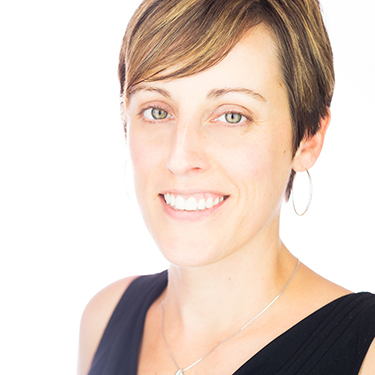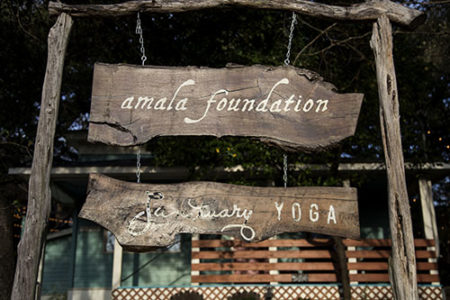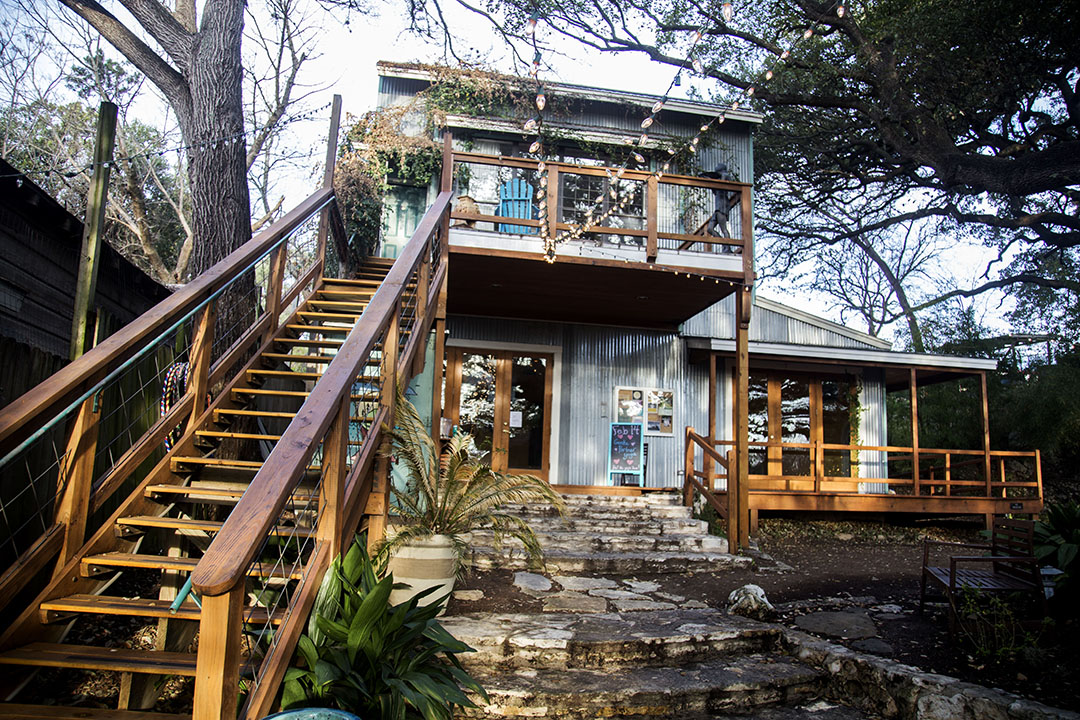As the interim executive director of the Amala Foundation, Jen Lucas passionately encourages Austin’s youth to embrace their similarities.
By Amanda Pinney
 In 2010, Jen Lucas received a desperate call from the Amala Foundation. One of the counselors for the foundation’s annual Global Youth Peace Summit had taken ill and the organizing committee was in need of a female representative to fill her place. At the time, Lucas was running a mentor program for another Austin nonprofit called Youth Advocacy and had no idea saving the day for Amala would mean she would soon find herself immersed in the goals and aspirations of the organization. Indeed, it didn’t take long for her to fall in love
In 2010, Jen Lucas received a desperate call from the Amala Foundation. One of the counselors for the foundation’s annual Global Youth Peace Summit had taken ill and the organizing committee was in need of a female representative to fill her place. At the time, Lucas was running a mentor program for another Austin nonprofit called Youth Advocacy and had no idea saving the day for Amala would mean she would soon find herself immersed in the goals and aspirations of the organization. Indeed, it didn’t take long for her to fall in love
with the foundation’s work.
Founded in 2001, the Amala Foundation aims to unite young people from all walks of life and inspire them as leaders and individuals. The foundation offers a variety of programs for all ages, ranging from a summer camp called Camp Indigo to leadership conferences with a focus on creating safe spaces for immigrant and refugee youth who have resettled in Austin.
To ensure youth from low-income families can participate in the programs, the foundation raises money from individual donors and corporate sponsors, as well as through yoga classes offered in its Sanctuary Yoga studio on South Eighth Street. In 2014, the studio raised more than $115,000 to apply to scholarships, and to this day, 100 percent of class proceeds from Sanctuary Yoga benefit the Amala Foundation.
The foundation’s programs are meant to offer a sort of healing process for many of Austin’s diverse youth. What makes these programs successful is the welcoming atmosphere that prompts young participants to open up and speak freely about personal issues.
 “I’ve always been astounded by the magic that happens within Amala’s programs, and how quickly Amala is able to create a space where youth are so free to be open,” Lucas says. “I’d been running all these youth programs, trying to get young people to talk about what’s really going on with them and was never successful.”
“I’ve always been astounded by the magic that happens within Amala’s programs, and how quickly Amala is able to create a space where youth are so free to be open,” Lucas says. “I’d been running all these youth programs, trying to get young people to talk about what’s really going on with them and was never successful.”
After answering that call in 2010 to join Amala’s Global Youth Peace Summit, Lucas stuck with the foundation, helping out with program management before moving into fundraising consulting. In September 2015, she became the foundation’s director of development, a position she held for a year before board members started dropping hints about needing someone to fill the exiting long-time executive director’s role.
Now the interim executive director, Lucas oversees all operations, programs and fundraising for Amala, helping the organization work on its strengths and weaknesses. Now, Lucas says, it is time to tackle segregation in the city.
“The work with Amala is really timely right now. Our schools are intensely segregated,” Lucas says. “We do have a global community, but it’s not mixed and everybody is kind of held in these pockets and there’s not a lot of work being done to blend them.”
 According to a 2015 study by the Martin Prosperity Institute, Austin is one of the most economically segregated cities in the nation. Public schools in Austin were also rated “intensely segregated” by a 2013 education study spearheaded by the University of Texas.
According to a 2015 study by the Martin Prosperity Institute, Austin is one of the most economically segregated cities in the nation. Public schools in Austin were also rated “intensely segregated” by a 2013 education study spearheaded by the University of Texas.
Lucas hopes Amala can provide a solution for this separation by incorporating more of the foundation’s programs into schools in the near future.
“A big part of what [Amala is] trying to do with the mixing of youth is [to make people]realize that all these differences they think are there don’t compare to what we all have in common,” she expounds.
Built on a purpose of celebrating diversity and recognizing common humanity, Amala’s programs continue to attract more participants. The organization currently serves 5,500 youth from more than 50 different countries, and the popular Global Youth Peace Summit—considered the Christmas Day of the foundation’s programs—has a wait list every year.
“We’re all just humans. We all have struggles. We all have hobbies and passions and horrible things that have happened in our lives,” Lucas says. “As far as the work that needs to be done in the world right now, this little, tiny organization is helping people realize their differences are so small compared to how similar we are.”

